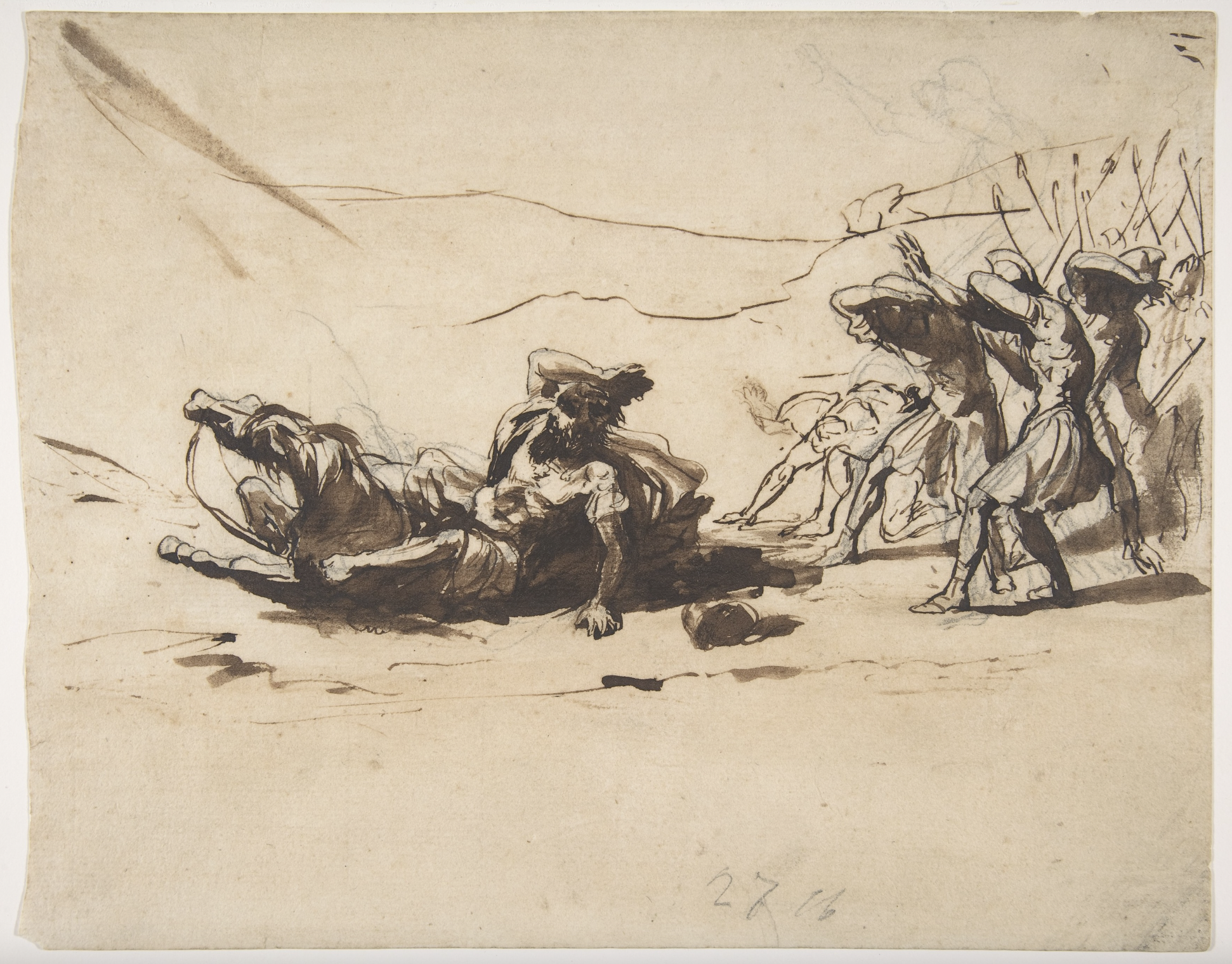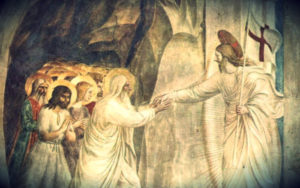
What is the Feast of the Conversion of St. Paul?
On January 25, we commemorate the Feast of the Conversion of St. Paul to reflect on God’s sovereign work in using him as an instrument to convey the Gospel in both his life and doctrine. Writing a considerable portion of the New Testament, there’s no Christian whose faith isn’t touched by the testimony and ministry of St. Paul.
Who is St. Paul?
A Persecutor of Christ
St. Paul was the “apostle to the Gentiles,” spreading the message of our Lord Jesus Christ to those even outside of Judea, easily being one of the most influential Christians throughout history. But Paul, not unlike us all, has a history antithetical to the Gospel; He was once Saul of Tarsus, persecuting and delivering Christians to their deaths, all in the name of God.
St. Paul, speaking of his history as a persecutor of Christians, states,
3 “I am a Jew, born in Tarsus in Cilicia, but brought up in this city, educated at the feet of Gamaliel according to the strict manner of the law of our fathers, being zealous for God as all of you are this day. 4 I persecuted this Way to the death, binding and delivering to prison both men and women, 5 as the high priest and the whole council of elders can bear me witness. From them I received letters to the brothers, and I journeyed toward Damascus to take those also who were there and bring them in bonds to Jerusalem to be punished” (Acts 22-3-5).
When we remember St. Paul, we cannot ignore Saul – a devout, malicious, indignant, and horrific persecutor of Christians. But, by the grace of our Lord, his story didn’t end there.
An Apostle of Christ
St. Paul’s testimony continues, now relaying the moment Christ confronted him on the road to Damascus,
6 “As I was on my way and drew near to Damascus, about noon a great light from heaven suddenly shone around me. 7 And I fell to the ground and heard a voice saying to me, ‘Saul, Saul, why are you persecuting me?’ 8 And I answered, ‘Who are you, Lord?’ And he said to me, ‘I am Jesus of Nazareth, whom you are persecuting.’ 9 Now those who were with me saw the light but did not understand the voice of the one who was speaking to me. 10 And I said, ‘What shall I do, Lord?’ And the Lord said to me, ‘Rise, and go into Damascus, and there you will be told all that is appointed for you to do.’ 11 And since I could not see because of the brightness of that light, I was led by the hand by those who were with me, and came into Damascus” (Acts 22:5–11).
Though we cannot forget Saul in our remembrance of St. Paul, we also remember a man who had a real encounter with the risen Christ, responding with acknowledgment of His Lordship and willful submission to His commands. Thanks to Christ for confronting him outside Damascus, for He forever changed St. Paul from being a hater of Christ to a lover of Him.
Though it is far from common experience to share in Saul’s responsibility for the death of Christians, we were also once without Christ in our unbelief. And now, even as Christians, sin remains in us and comes to fruition in varying degrees throughout our lives, and as such, we are called to turn from sin and submit daily to Christ.
Let us be like St. Paul and submit to the confrontations of Christ in our own lives, surrendering to Him as Lord and submitting ourselves as followers of all He has commanded.
Learn More: Why Do Anglicans Celebrate Feast Days?
St. Paul’s Conversion, a Response to St. Stephen’s Prayer
St. Stephen, a recipient of St. Paul’s hatred, played his God-given role in St Paul’s conversion.
In Acts 7:60, we learn that St. Stephen offered up a prayer just before his death. As the last stone fell upon him to crush him, he cried, “Lord, do not hold this sin against them.”
There stood St. Paul – but Saul at the time – with full assurance that he did the right thing in service to God, overlooking the murder of St. Stephen. Though mistaken, God was ready to do the job of forgiving Saul of his sins and set him apart as one of the greatest leaders in spreading the Gospel throughout the world. Thus, St. Paul’s conversion was a direct answer, by God, to St. Stephen’s prayer.
St. Paul’s Call to Weakness
St. Paul’s response to God at the onset of his conversion ought to remind us of our duty: to carry out the will of God in our lives. In Acts 22:10, St. Paul asks, “What shall I do, Lord?”
This question should not be overlooked; St. Paul’s submission unto God is evident in this question. Christ answered that St. Paul was to give up his former life, one of prestige, and take on a cruciform life.
In his confrontation with the “Super Apostles” of Corinth, he evinces what this not-so-glamorous life of the gospel ought to look like:
23 Are they servants of Christ? I am a better one—I am talking like a madman—with far greater labors, far more imprisonments, with countless beatings, and often near death. 24 Five times I received at the hands of the Jews the forty lashes less one. 25 Three times I was beaten with rods. Once I was stoned. Three times I was shipwrecked; a night and a day I was adrift at sea; 26 on frequent journeys, in danger from rivers, danger from robbers, danger from my own people, danger from Gentiles, danger in the city, danger in the wilderness, danger at sea, danger from false brothers; 27 in toil and hardship, through many a sleepless night, in hunger and thirst, often without food, in cold and exposure. 28 And, apart from other things, there is the daily pressure on me of my anxiety for all the churches. 29 Who is weak, and I am not weak? Who is made to fall, and I am not indignant? 30 If I must boast, I will boast of the things that show my weakness” (2 Corinthians 11:23–30).
Paul, a man who once had the utmost power as a religious leader, gave up all things and chose weakness instead of strength.
Being like Paul begins by asking this question: “What shall I do, Lord?”
Conclusion
For those of us who believe we know people who are too far off for, too wicked for, or too sinful for salvation— St. Paul proves none are too far gone. By the power of God, we ought to diligently pray not only for the salvation of mankind but also for those who persecute us.
Some of us might feel stuck in our relationship with God or are in a season of rebellion against Him. Let St. Paul’s conversion story remind us what our first step in the right direction might look like by asking a simple yet profound question, “What shall I do, Lord?”
Thank God for St. Paul!
Pray the collect for this feast day:
O GOD, who, through the preaching of the blessed Apostle Saint Paul, hast caused the light of the Gospel to shine throughout the world; Grant, we beseech thee, that we, having his wonderful conversion in remembrance, may show forth our thankfulness unto thee for the same, by following the holy doctrine which he taught; through Jesus Christ our Lord. Amen.
Our Mission
To multiply faithful servants of Christ; who will commit themselves to the worship and doctrines of the Anglican way, and who will work by God's grace and for His glory to disciple the nations through the ministry of the Church.








